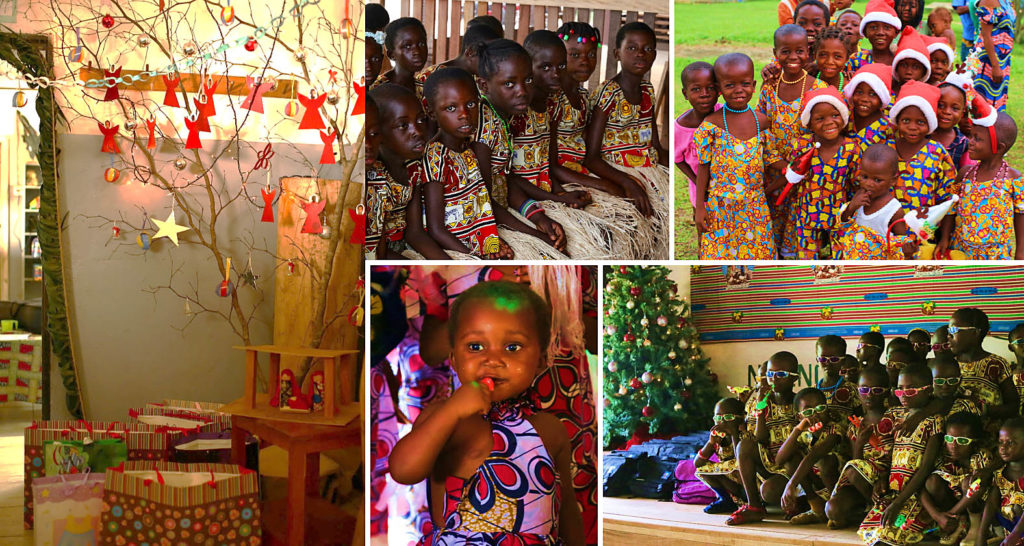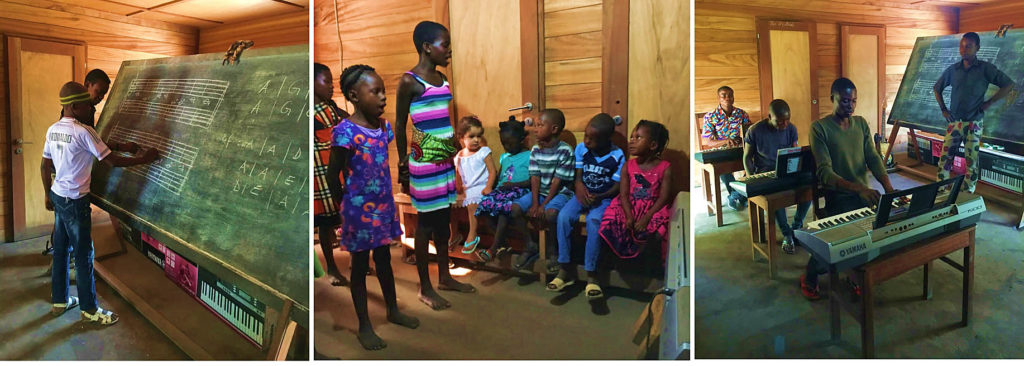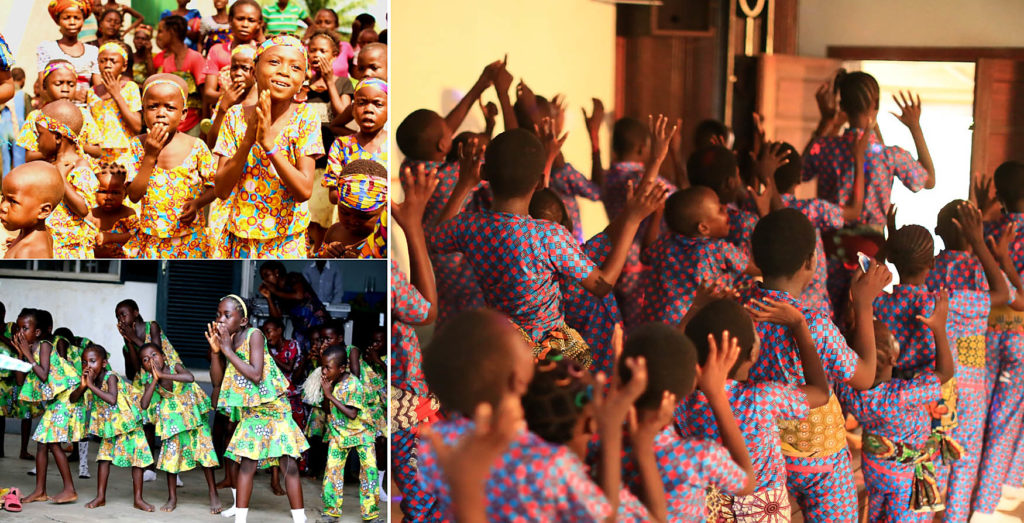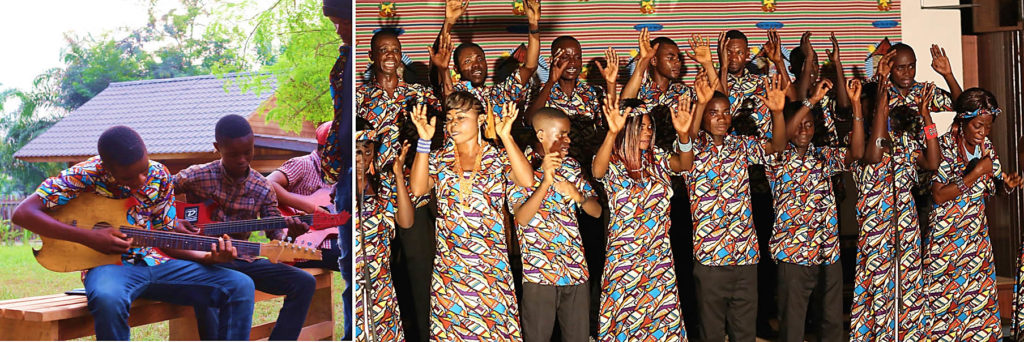Live concert in 2017 by the students of the school of music of Sodefor
SODEFOR plays a key role in education in all of its areas of operation.
Here are some examples of the company’s contributions beyond article 89 of the Forestry Code:
- Construction of a kindergarten which all of Nioki’s children can access free of charge.
- Organizing educational activities led by young female students, for children receiving malnutrition treatment at Sodefor’s Nutrition Project.

- Memorandum of understanding for 5,000 school desks to be supplied to Nioki for free.
- Donated more than 3,000 school desks to several schools in the Maï Ndombé district.
- Donated several dozen school boards and construction wood to a large number of schools in Nioki and the Maï Ndombé district.
- Regularly donates school supplies to several schools in the Maï Ndombé district.
- Provides primary school children with guided visits of the wood processing factories to enrich their general education.

- Participated in a project with the Bandundu provincial department of primary, secondary, and professional education to renovate 4 primary schools (60 classroom serving a total of 1,862 students) as part of the DRC-UNICEF collaboration program.
- Sodefor provided all of the construction wood needed to renovate the 4 schools, as well as the school desks required by the total number of students.

- Cares for orphaned and/or children suffering from deficiencies through the SODEFOR Nutrition Project and other initiatives, in primary and secondary school, providing clothing, food, and school supplies.

- Organizes an annual Christmas event at the Nioki hospital to foster an environment of peace and solidarity for participants: cured children give presents and food and sing to those who are still sick.

- • In addition to educational and entertainment activities for malnourished children in Sodefor GRH’s Nutrition Project, another project has been created with the goal of supporting these children's development: a music school..
- Musical education is a mandatory requirement in nearly all primary schools around the world; music is known to be essential for children’s intellectual development, with a significant impact on the human brain.

- This project (100% managed by Sodefor), launched in 2012 and was initially open only to children who had been cured by the Nutrition Center. Thanks to its success, since 2014 it has been open to all children and teenagers wishing to learn music.
- Students can follow a complete curriculum through three complementary activities: musical education, learning an instrument, and the ensemble class.
- To do this, Sodefor hires 2 musicians from Mai Ndombe to provide musical and professional education that is both fun and rigorous.

- Thanks to the program's popularity with the children, since 2015 the school was compelled to offer classes for youth and adults as well.
- Most of the adults who join the school have not completed school, do not have jobs, and have not received any prior musical education.

- The music school, with its educational activities, contributes very positively to:
- Linguistic development – lyrics are sung not just in lingala and other dialects, but also in French, English, Swedish, and Portuguese;
- The rights of children and young people
- Activities for teenagers
- Responsibility
- Rigor
- The most common themes in the songs include:
- Friendship/love
- Alphabet/numbers/music n
- Religions (adults)
- Cultures
- War/current reality (adults)
- Freedom of expression (adults)
